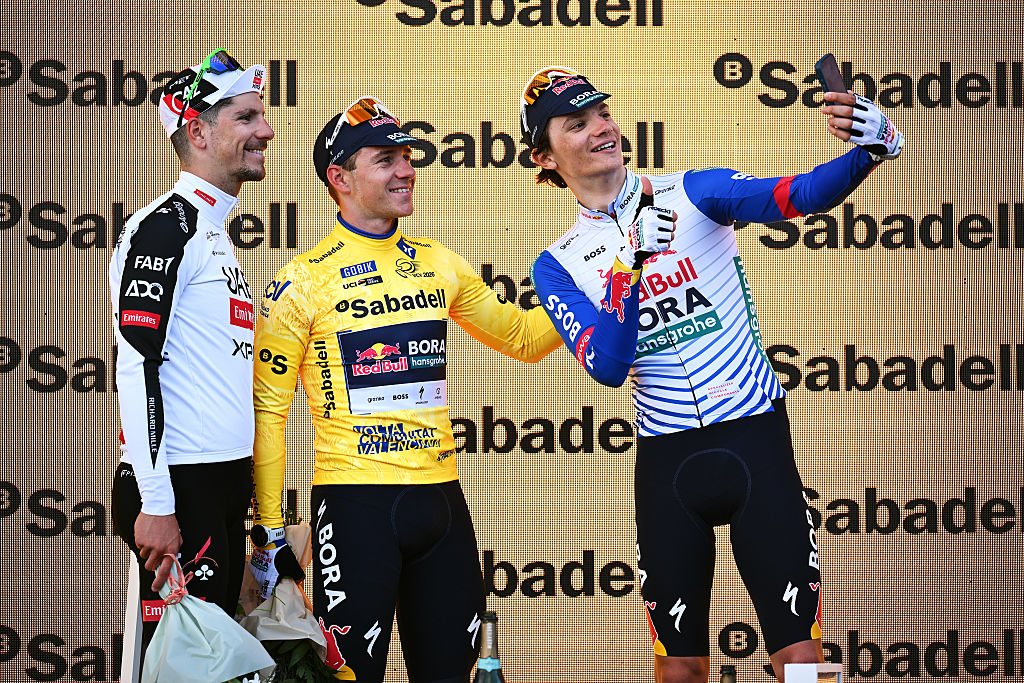Chris Horner - RadioShack's man for the Classics?
After Basque victory, American eyes the Ardennes
The latest race content, interviews, features, reviews and expert buying guides, direct to your inbox!
You are now subscribed
Your newsletter sign-up was successful
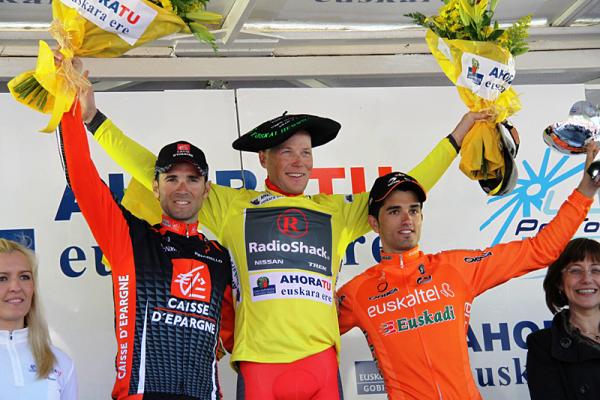
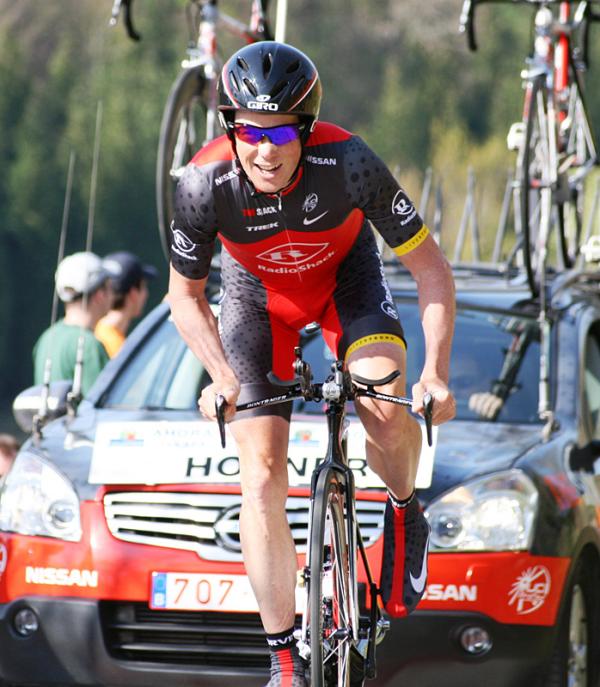
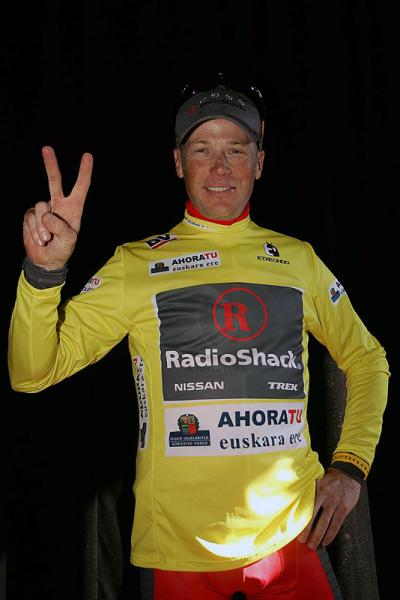
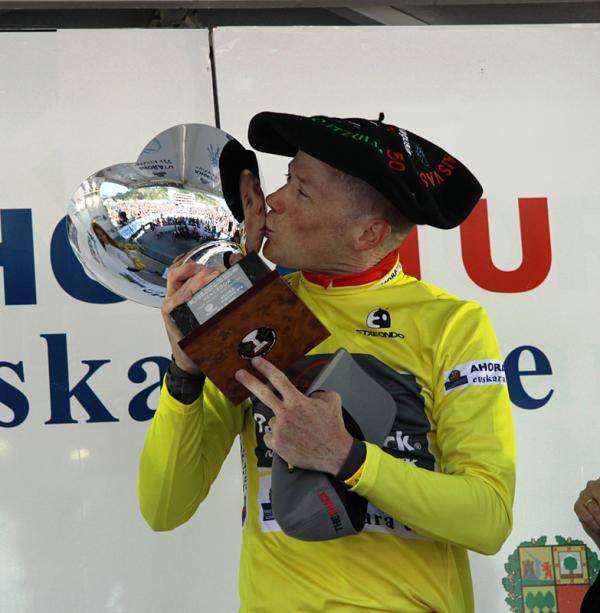
Before last weekend's breakthrough at the Tour of the Basque Country, it was 2006 since Chris Horner was able to raise his arms in victory. But after years of service to his team captains, the 38-year-old was finally able to fulfill the promise which has glinted from behind strings of bad luck crashes in recent years. Now he hopes to take that fitness to the Ardennes Classics, perhaps to become the first American since Tyler Hamilton to win Liège - Bastogne - Liège.
Four years ago, it was a stage of the Tour de Romandie where Horner escaped in the final kilometres to win the day and claim the overall lead until the next day, some kid named Alberto Contador came and stole the jersey away.
The two would go on to become teammates on Astana, of course, although Horner was never able to help the Spaniard to any of his Tour de France victories. Yet he did help Contador to a win in the 2008 Basque Tour, and if his fortunes had not gone sour he would have done the same in 2009 and gone on to enjoy the spoils at the Tour de France.
However, an unfortunate series of crashes, one in the Basque Country, last year left Horner out of the Tour squad and unable to take advantage of the best form of his life.
"Last year I had this form all of last year and nobody saw it. There were glimpses of it here and there - if you saw me in the Basque Tour before I broke my collarbone, or in the Giro stages before I broke my leg, there were only five of us going for the summit finish and I was one of them. And if you really looked at the Vuelta before I crashed out on stage 4 you could see I had fantastic form," Horner told Cyclingnews.
"I spent a lot of time on the couch last year and it was frustrating. This year I told the team when I went to the Basque Country I wanted to go for the win."
It was a perfect race for Horner to target, since the team's other GC leaders, Lance Armstrong and Levi Leipheimer, were not riding and while Horner went into the race as co-leader with Klöden, it was clear from the first stage who had the best legs.
The latest race content, interviews, features, reviews and expert buying guides, direct to your inbox!
"I felt confident from day one. Before the race started I'd asked to be the team leader, after stage 1 it just reaffirmed what I thought. I'd been training with the SRM, so I knew where my form was. I had a good Critérium International (he finished 7th overall) and had good numbers there. Going into the race I didn't have the SRM with me, but I could tell how I felt, and I felt fantastic.
"After the first day, I was confident that if it came to the time trial I'd have a shot at it. But with Valverde you never know - he's quite impressive, and Sammy Sanchez is a good time trialer, but after he lost time on the first day it looked more promising. I didn't want to come to the TT with Rogers or something like that."
The stages that followed were some of the most chaotic, challenging and hotly contested races on the calendar - every one of which was raced with the intensity of a one-day Classic. It took constant attention, tenacity and tactical nous to be able to keep the overall victory just a few seconds away, but that is exactly what Horner managed to pull off.
"Even the 'sprinter's stages' weren't really sprinter's stages. It's the Basque country so it's a very difficult race and there's always a climb near the finish. The 1st and 2nd stage were flatter than the others but still incredibly hard."
The most important stage to Eibar on Thursday proved Horner's form despite his attack on the final climb being neutralised and the stage going to Sanchez thanks to the chase by Alejandro Valverde, who ended the day in the leader's jersey but with just a one-second advantage over Horner - the same gap they would take into the race's final time trial.
"Valverde is an impressive rider. He did a fabulous job of bringing me back after I attacked. Sanchez attacked and got me just after the top - and then he got away in the final kilometre."
That Horner beat Valverde in the time trial and took home the overall win may have been a pleasant surprise for his fans back home, but the Oregon resident said it wasn't a shock for anyone at the race.
"The Basque tour was almost like six one-day races in a row, that's how they race it and that's what makes it so hard. You really know who to watch - by day 5 there is no secret as to who has form. I don't think anyone was surprised when I was still there on the climb on stage 4, and they weren't surprised I won the TT after the way I was climbing the day before.
"I think everyone was surprised I beat Valverde, but I don't think it was any surprise that I went well."
Heading into the Ardennes Classics, Horner is not only in great form, but also brimming with confidence after finally having been able to stand atop the podium and drink in the feelings of a champion. But will he be the team's leader for the Amstel Gold Race, La Flèche Wallonne and Liège - Bastogne - Liège?
"I hope so - if you're asking me, sure, but the directors make those decisions. I'm confident on my form and I know it's going to be good. Certainly with this win I'd like to be the outright favorite on the team, but we won't know that until we get there and have the team meeting.
"Hopefully everything goes as planned. I have a little bit of a nagging injury that was bothering me at the Basque tour - but it didn't seem to affect the form. it was just a little sore. I was going to do La Flèche Brabançonne, but the Achilles was kind of sore after the race so I decided to go back to Spain and rest it a little bit."
After the Classics, Horner will head back home to the USA to ride the Amgen Tour of California, where most of the RadioShack team's Tour de France squad will assemble to try and deliver Leipheimer to his fourth consecutive victory. Yet with the Basque Tour win as the team's only stage race success of its nascent season, does this mean RadioShack now has four leaders for the Tour de France?
Horner laughed, "I can't answer that question! I have spectacular form right now, and I don't think that bike races get any harder than Tour of the Basque Country with the exception of a Grand Tour."

Laura Weislo has been with Cyclingnews since 2006 after making a switch from a career in science. As Managing Editor, she coordinates coverage for North American events and global news. As former elite-level road racer who dabbled in cyclo-cross and track, Laura has a passion for all three disciplines. When not working she likes to go camping and explore lesser traveled roads, paths and gravel tracks. Laura specialises in covering doping, anti-doping, UCI governance and performing data analysis.
